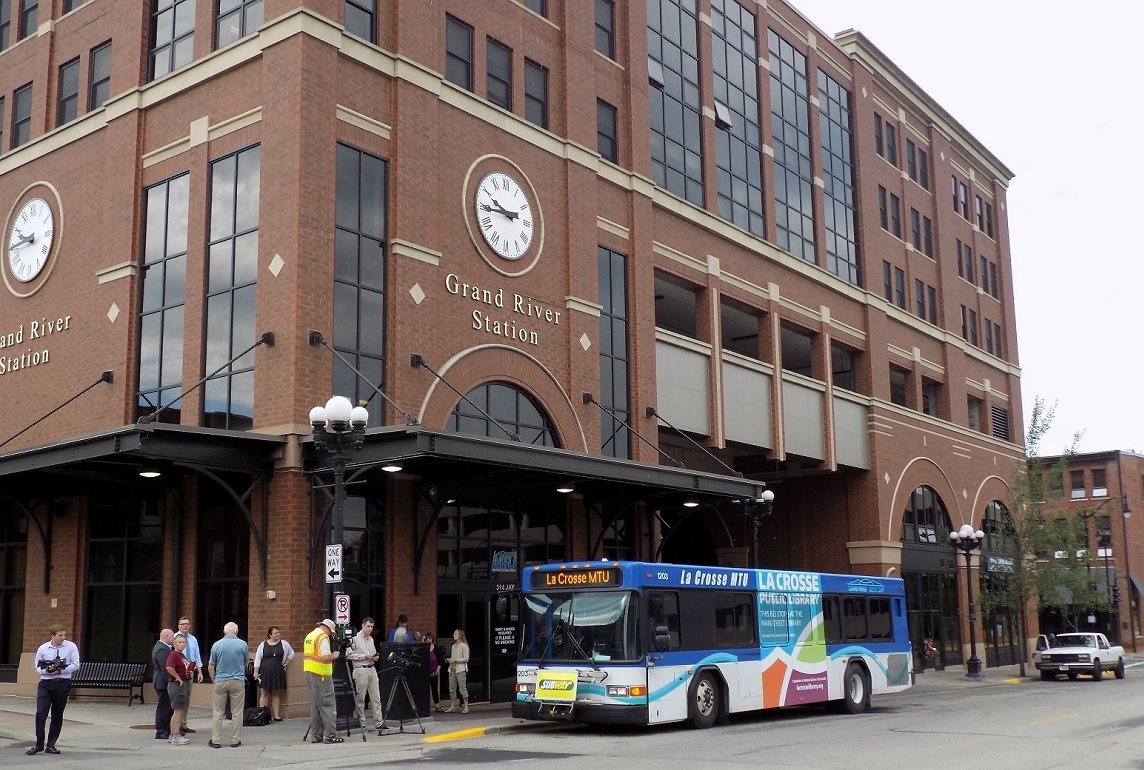Environment
Moving to electric, La Crosse’s MTU pushing to get back to 1 million rides a year

A million rides a year.
That’s about the average for La Crosse busses, under normal circumstances — pre-pandemic, and such.
Municipal Transit Utility (MTU) manager, Adam Lorentz said last week on La Crosse Talk PM if everything is running smoothly, busses get about 1 million rides — not riders — per year. Meaning a million times someone gets on and off the bus.
Lorentz didn’t really answer what the ideal number would be for the city, reverting to that 1 million number being a good one. Asked what would be too many, Lorentz also didn’t have an answer — but in sort of a good way.
“There’s never too many,” Lorentz said. “If people ride the bus, I will figure it out. That’s why I’m here. That’s what my job is. If we continue to grow, the fleet will continue to grow, as well.”
Along with increasing and accommodating whatever the number is for those who want to ride the busses, Lorentz added he’s also trying to change the mindset of those who want to get around in the city.
“Numbers are great, and I’ll say I have to go by the numbers,” Lorentz said. “But our mission for the future is to try to get those riders that are there because they want to ride the bus, not because they need to.”
La Crosse has received 14 new busses in the past year and a half, Lorentz said, including two electric busses and 10 diesel busses. Two more hybrid busses are coming next year. The city has 23 total busses.
Those two electric busses run a “full day’s service” Lorentz said and charge overnight.
And it’s those electric busses that have local climate activists calling on leadership to do more.
A group called the Wisconsin Health Professionals for Climate Action and local leaders discussed the importance of moving to electric vehicles.
The group specifically called on US Congressman Ron Kind (D-La Crosse) to support the expansion of electric vehicle use.
Lorentz joined the campaign, discussing the difficulties in changing over.
“EV vehicles take time to get there,” Lorentz said. “They take training to operate the vehicles. But they also take equipment to charge them. And that infrastructure is such a huge piece. I think it’s really a large hurdle that some communities our size face.”
The campaign argues electric vehicles will cut down on pollution, causing illnesses and deaths, and help reduce climate changes leading to warmer and wetter weather.
La Crosse city council member Mark Neumann, a retired physician, said increased pollution might be responsible for disasters like the Coon Valley area floods of 2018.
“If you have more carbon dioxide in your atmosphere you’re going to have more infrared absorbed there, you’re going to have more heat,” Newman said. “If you have more heat, you have bigger clouds, more water in those clouds and that rain just falls on our country.
“So the source of the problem is getting away from our independence on sources of energy that increase the carbon dioxide in our atmosphere.”
La Crosse County board chair Monica Kruse also took part in a news conference last week, calling for quick federal action.
Ridership in the city is back to about 70% of what it was before COVID. During the pandemic, it was down to 30% — but that was somewhat by design.
Lorentz said they only wanted people who absolutely needed to use the busses to do so, and everyone else to stay home.
“It’s probably the only time you’ll ever quote a transit guy encouraging less ridership,” Lorentz said.
— WIZM’s Brad Williams contributed to this story.





